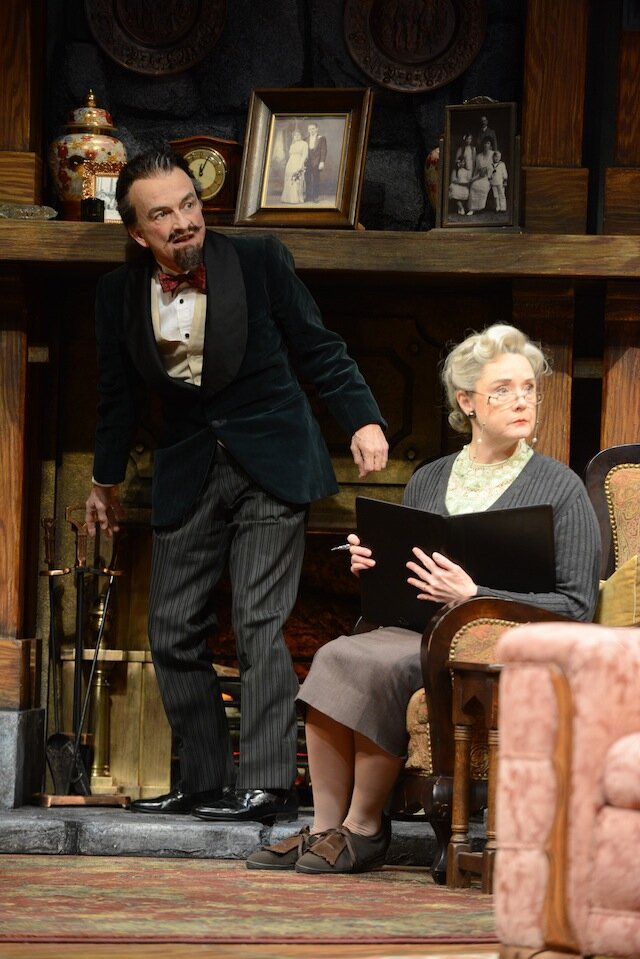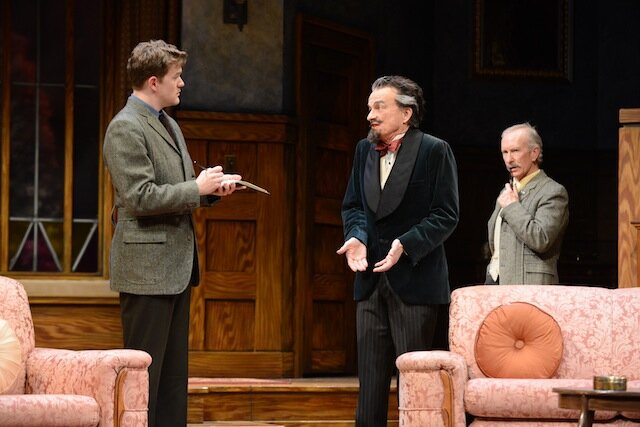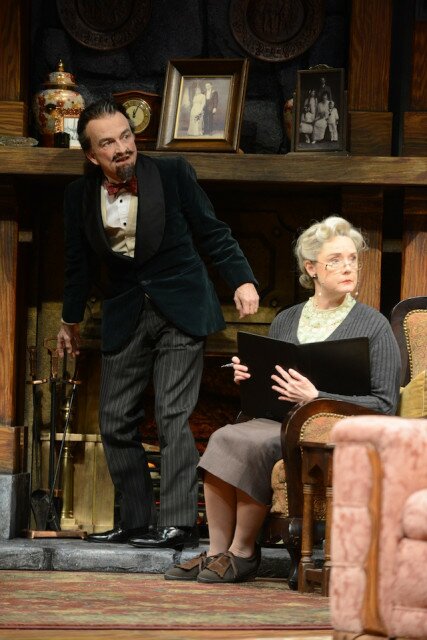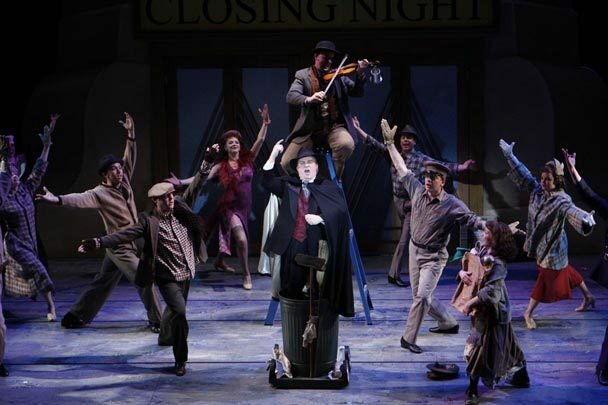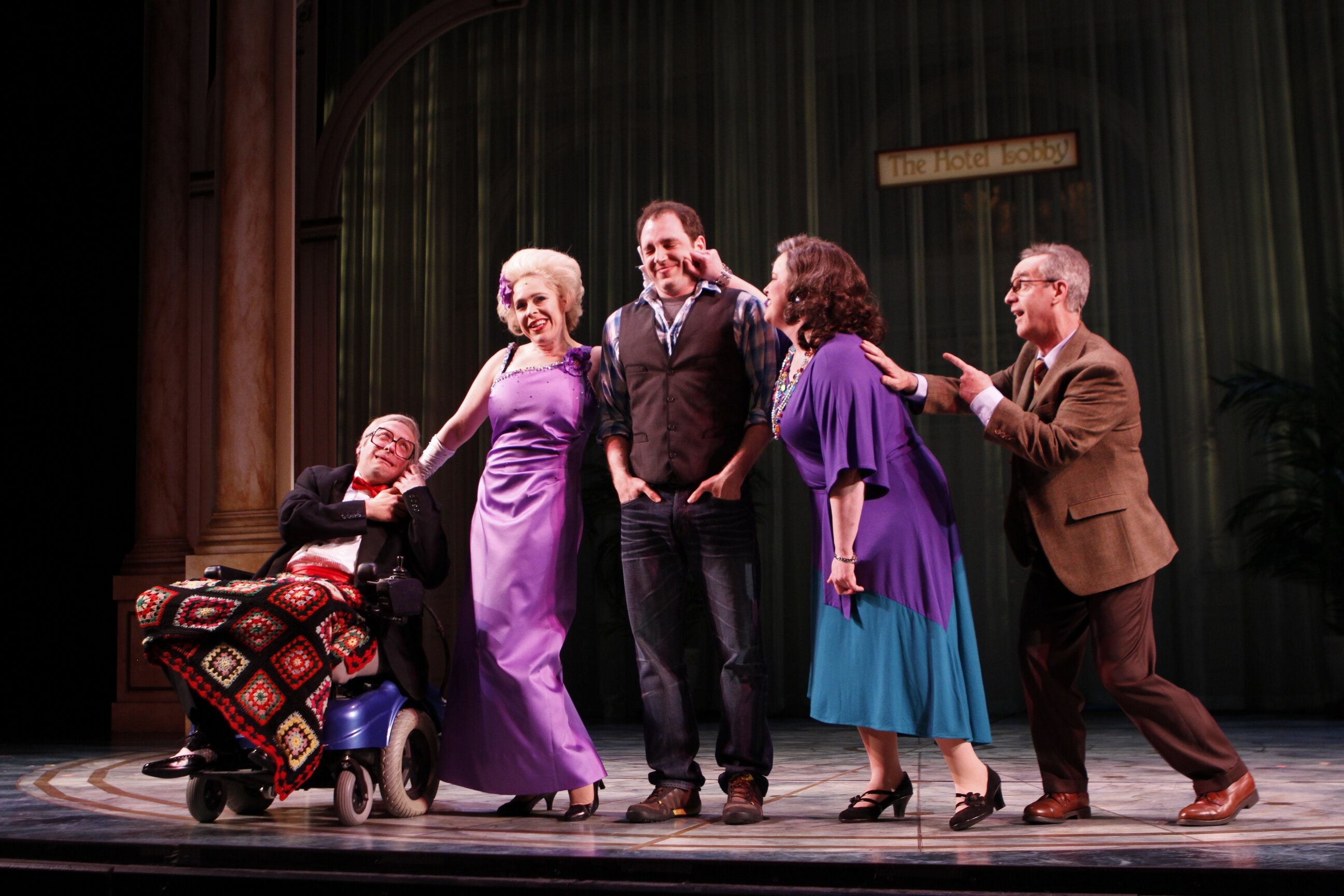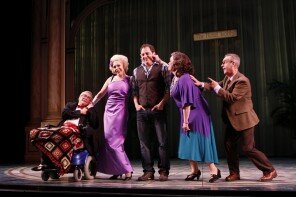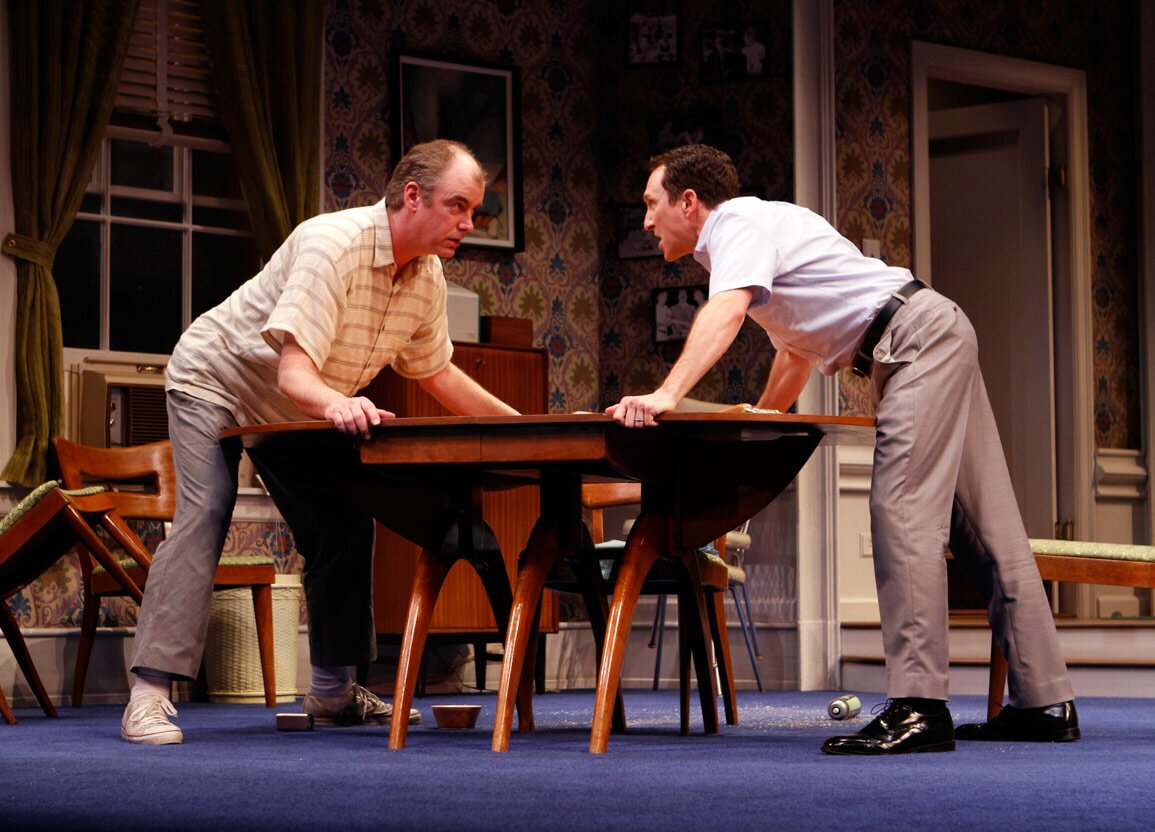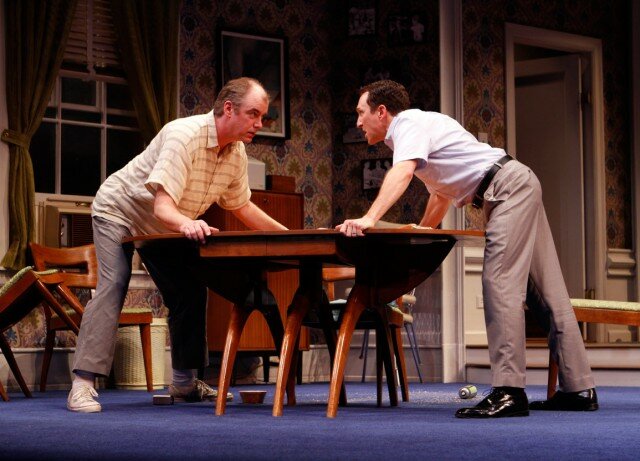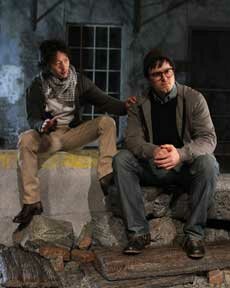After Agatha Christie’s play The Mousetrap opened in London in 1952, the film rights were bought by a man who knew a good thing when he saw one. However, there was a proviso: He couldn’t make the movie until the play’s theater run was over (eight months or so, the author thought). Sixty years later, The Mousetrap is still running in London, and the man has since died. Bad investment!
Issaquah’s Village Theatre has just opened its production of Mousetrap which runs there until February 24 and then moves to Everett for several more weeks, closing March 24.
I saw The Mousetrap in London in the 1950s, but had forgotten the story. The Mousetrap is a classic whodunit, and part of its fun is that audiences are requested not to reveal the ending to anyone so as not to spoil it for future playgoers. So if you think I’m going to tell you by the end of this review, you will be disappointed.
I attended opening night Thursday slightly worried that it would not be as English as it must be. (Despite living in the U.S. for over half a century, I am still English to the core.) Let me tell you I was completely reassured. The set, by Jason Phillips, was splendid—the large entry hall of a probably Victorian mansion, with fireplace and imposing mantel, thoroughly inconvenient with steps in unexpected places, five entrances, and furniture slightly diminished in the presence of so much heavy oak and high ceilings. Very drafty, too, I daresay.
Direction by guest Jeff Steitzer is unerring. The play was contemporary in 1952, set a few years after the end of WWII, and it has been kept in that era. Even the background music for patrons arriving at the theater is of that date.
A young couple has embarked on running a guest house, and their first four guests arrive, followed by a fifth who has been stranded by the blizzard raging outside. Marooned by the snow, they hear on the radio of a nasty murder in London and get a call from the police who are sending them help as it is thought the murderer will be heading their way. A police sergeant arrives through the hall window in full arctic regalia and shortly after, one of the guests is indeed murdered and the telephone wires cut. Whodunit? Everybody seems to have something they would rather not mention to the policeman — suspicion abounds while dinner burns in the kitchen, and eventually all is uncovered.
It’s a great cast of eight actors all well known and admired in the Seattle area, and they all spoke excellent English, mostly what is known as the King’s, or Oxford English, as is spoken by Queen Elizabeth, with the sergeant having a local accent. Had they not, it could have ruined the play, so kudos to the production’s vocal coach (who is not mentioned in the credits).
Ellen McLain as the fault-finding Mrs. Boyle makes you itch to give her her comeuppance somehow, and wherever did the costume department find that beautiful full-length fur coat, here in the Northwest, for heaven’s sake? David Pichette as the stranded motorist Mr. Paravacini, exotic with his velvet jacket, his obvious toupée and his Italian effusiveness, makes the others slightly uncomfortable, but not nearly so much as Quinn Armstrong as Christopher Wren.
Armstrong turns in a stellar performance as a young man who may, or may not, be gay, who may, or may not, have some mental problems given his slightly manic and not quite appropriate behavior, not to mention his unnerving giggle and individual style of dress. Armstrong acts him to perfection, never overboard, always just slightly off.
Jennifer Lee Taylor as the aloof Miss Casewell, R. Hamilton Wright as retired army Major Metcalf and Richard Nguyen Sloniker as host Giles Ralston all turn in fine performances as their more straightfoward characters, though Sloniker’s timing is occasionally not quite as good as the others, and his pronunciation of his wife’s name “Molly” is the only speech slip I detected (the ‘o’ too wide, the ‘ll’ too swallowed.).
Hana Lass is completely natural as Molly the hostess, an excellent performance in every way, and Jared Michael Brown does well as Sergeant Trotter, the kind of bullying detective we are being told Seattle doesn’t want, and he doesn’t get very far with his intransigent and marooned witnesses.
But the mystery gets unraveled in the end, and the watcher sits back with a sigh of satisfaction and amazement that two and a half hours have slipped by.
